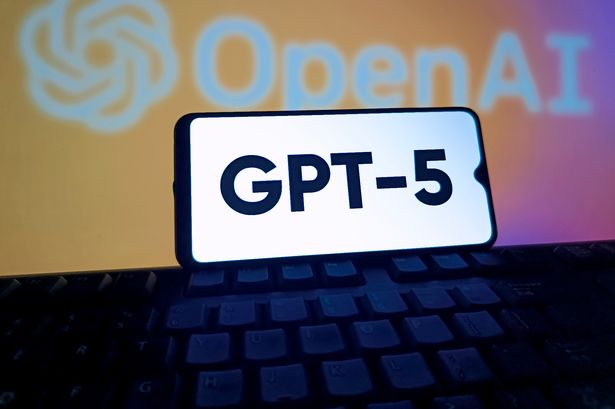Science
GPT-5 Unveils PhD-Level Capabilities, Sparks Debate on AI’s Future

The latest release of the artificial intelligence chatbot, GPT-5, has generated significant attention for its reported ability to deliver what experts describe as “PhD-level expertise.” Developed by OpenAI, this advanced version of the chatbot is equipped with features that enhance its conversational capabilities and knowledge base, raising questions about the role of AI in professional fields.
According to OpenAI, GPT-5 can now analyze complex topics, generate detailed reports, and assist users in various academic and professional settings. This marks a notable advancement in AI technology, as the chatbot has evolved to respond with greater accuracy and depth. The release, which occurred in March 2024, has sparked discussions about the potential implications of such advanced AI on employment and education.
Many educators and professionals are contemplating the impact of AI tools like GPT-5. While some view this technology as a valuable resource that can enhance learning and productivity, others express concerns about the possibility of AI replacing human roles in specific fields. The debate is particularly intense in areas such as research, writing, and even decision-making, where the expertise and judgment of human professionals have traditionally been paramount.
As GPT-5 enters the market, its capabilities are already being tested in various sectors. For instance, researchers and educators are experimenting with the chatbot to facilitate learning and develop new educational content. Meanwhile, businesses are exploring its potential to streamline operations and improve customer interactions.
Critics, however, caution against over-reliance on AI. They argue that while GPT-5 may offer advanced insights, it lacks the emotional intelligence and ethical reasoning that human professionals bring to their work. This distinction is vital, particularly in fields such as healthcare, law, and counseling, where human connection and understanding are crucial.
In response to these concerns, OpenAI has emphasized that GPT-5 is designed to augment, not replace, human expertise. The company advocates for a collaborative approach where AI acts as a tool to assist professionals, rather than a substitute for their skills. This perspective aims to alleviate fears regarding job displacement while highlighting the potential for increased efficiency and innovation.
Looking ahead, the implications of GPT-5’s capabilities extend beyond individual professions. As AI technology continues to evolve, society must grapple with the ethical and practical challenges it presents. Discussions surrounding regulation, accountability, and the role of AI in decision-making processes are becoming increasingly relevant.
As AI continues to advance, the conversation around its place in the workforce and society at large will likely intensify. The release of GPT-5 serves as a pivotal moment in this ongoing dialogue, pushing both the public and professionals to reconsider how they view and utilize technological advancements in their daily lives.
In conclusion, while GPT-5 showcases remarkable progress in AI technology, its integration into professional environments will require careful navigation of the benefits and challenges it presents. The future of work may depend on finding a balance between leveraging AI capabilities and preserving the irreplaceable value of human insight.
-

 Entertainment2 months ago
Entertainment2 months agoIconic 90s TV Show House Hits Market for £1.1 Million
-

 Lifestyle4 months ago
Lifestyle4 months agoMilk Bank Urges Mothers to Donate for Premature Babies’ Health
-

 Sports3 months ago
Sports3 months agoAlessia Russo Signs Long-Term Deal with Arsenal Ahead of WSL Season
-

 Lifestyle4 months ago
Lifestyle4 months agoShoppers Flock to Discounted Neck Pillow on Amazon for Travel Comfort
-

 Politics4 months ago
Politics4 months agoMuseums Body Critiques EHRC Proposals on Gender Facilities
-

 Business4 months ago
Business4 months agoTrump Visits Europe: Business, Politics, or Leisure?
-

 Lifestyle4 months ago
Lifestyle4 months agoJapanese Teen Sorato Shimizu Breaks U18 100m Record in 10 Seconds
-

 Politics4 months ago
Politics4 months agoCouple Shares Inspiring Love Story Defying Height Stereotypes
-

 World4 months ago
World4 months agoAnglian Water Raises Concerns Over Proposed AI Data Centre
-

 Sports4 months ago
Sports4 months agoBournemouth Dominates Everton with 3-0 Victory in Premier League Summer Series
-

 World4 months ago
World4 months agoWreckage of Missing Russian Passenger Plane Discovered in Flames
-

 Lifestyle4 months ago
Lifestyle4 months agoShoppers Rave About Roman’s £42 Midi Dress, Calling It ‘Elegant’









